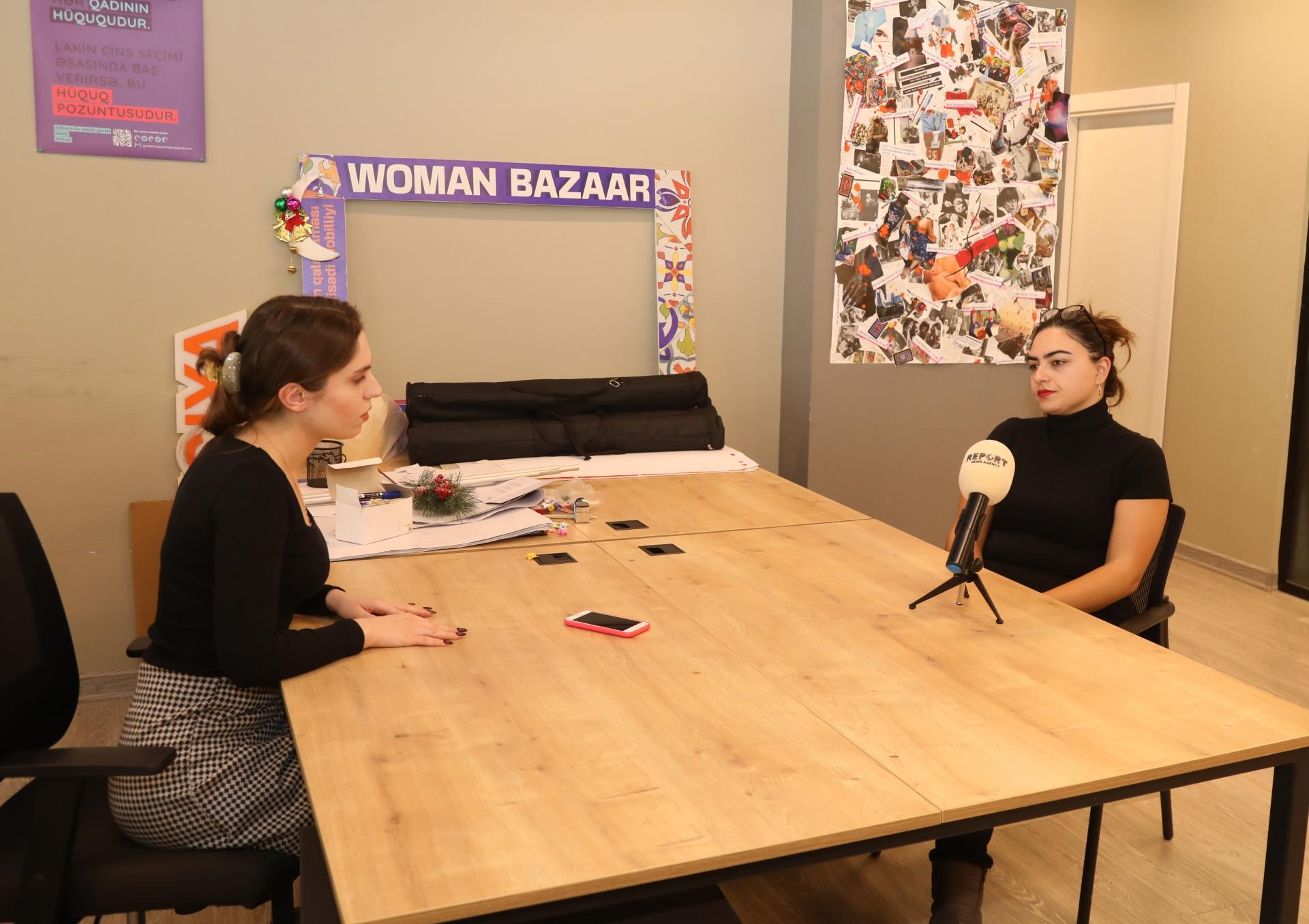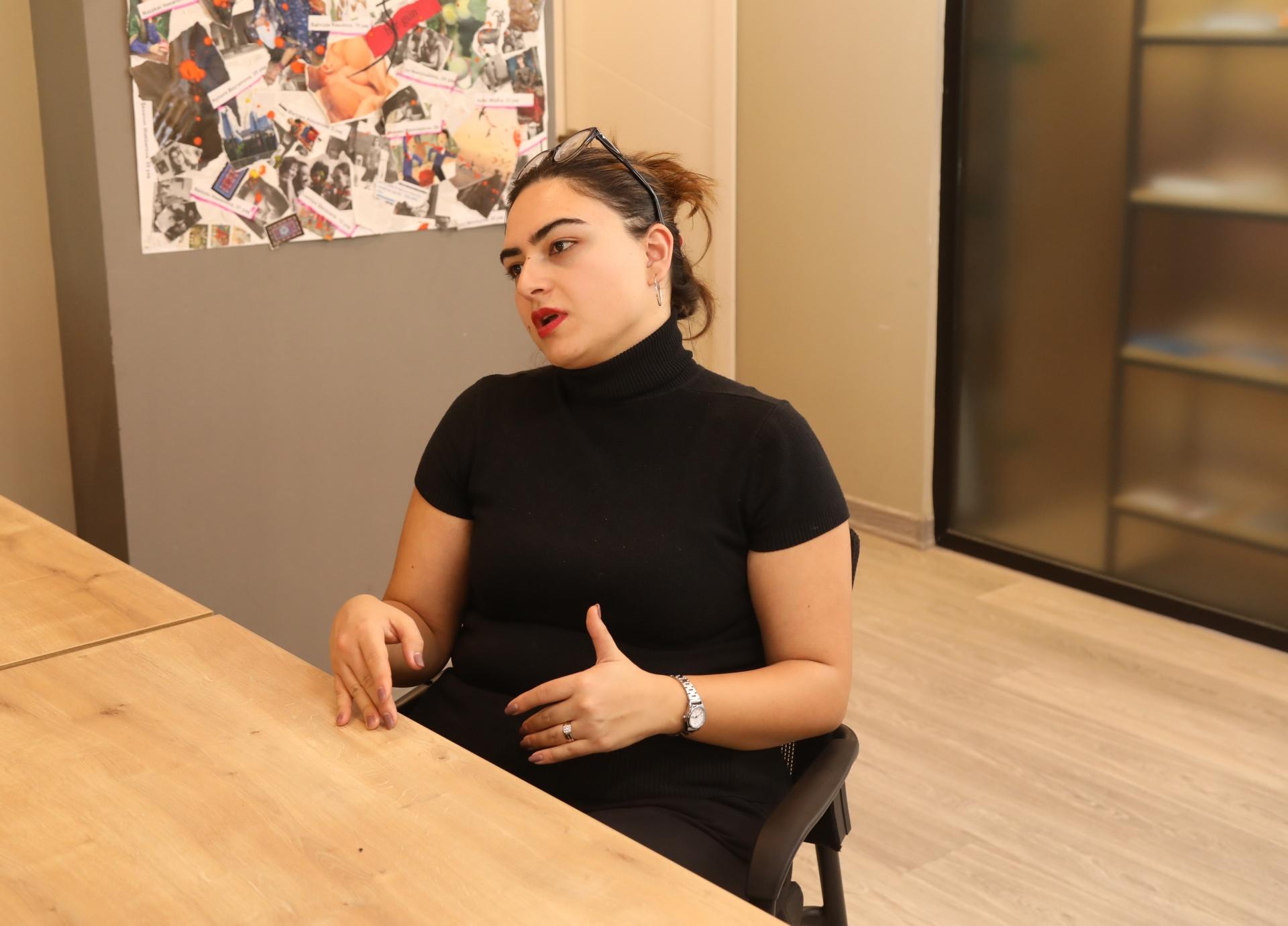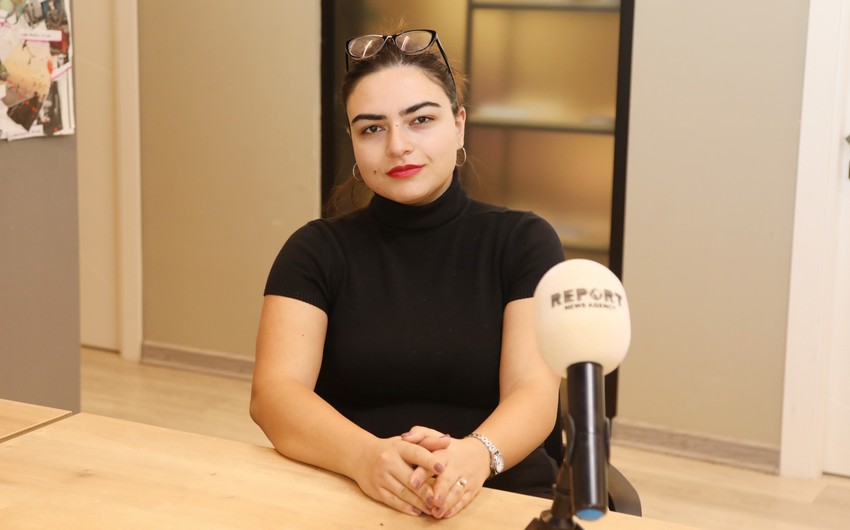The issue of selective abortions is very relevant, primarily in Asia and the Caucasus, according to studies, including from the United Nations Population Fund (UNPF). Azerbaijan is also among the countries facing this problem.
Report presents an interview with Maryam Majidova, the founder of Gender Hub, an NGO focused primarily on violence against women. The organization also deals with issues of selective abortions, carrying out research and surveys, especially in regions where this practice is most common, and seeks to destroy gender stereotypes.
- Can you tell us more about your activities?
- We have been operating since 2020. We have a hotline that receives information about violence against women. We try to help them by providing free psychological and legal assistance and shelter, if necessary.
We strive to create a world where there will be equality, so that women can enjoy their rights just like men.
Of course, we have equal rights in the Constitution, but in reality, the rights of women are infringed on much more than men. If a woman wants to study and be a mother at the same time, then she does not have to make a choice. She should be able to build a career and a family in parallel. But, unfortunately, a lot of women cannot enjoy this right.
The second problem is early marriages. Many people think that if they have not encountered this, then it remained in the 19th century. However, there are lots of examples, with brides at 14-15 and even 11 years old. Of course, this affects the physical health and psychological state.
Another problem is selective abortion. Azerbaijan is on a sad list of leaders in this matter. For every 116 boys, 100 girls are born in our country; the biological norm is considered to be the ratio of 100 girls in 102 to 106 boys. This means that demographically there is already a problem. If it continues this way, then by 2050, we will have only one girl for every nine boys. Therefore, focusing society's attention on this problem is very important.

- What international and local structures do you cooperate with and within what programs?
- We cooperate with various international organizations within the framework of various projects. For example, we had the Papa School project supported by the United Nations Population Fund.
We also cooperate with the Council of Europe, the embassies of various countries in Azerbaijan and other UN agencies, for example, the Human Rights Agency. In particular, it is planned to implement a joint project with the latter involving lawyers specializing in domestic violence. The project aims to help lawyers work on cases involving gender-based violence.
The Council of Europe helps us with resources and materials for training and programs and methodology.
There is also an international organization that we work with on early and consanguineous marriages. These projects are implemented through the British Embassy, as it is based there.
Last year, we implemented a theater project with the help of the Swiss Embassy and The Swiss Agency for Development and Cooperation. That is, there were training sessions on the problems of gender inequality, and then the participants staged a theatrical scene on this issue. There was a search for solutions when the scenario changed and a way out of difficult situations was demonstrated.
We implemented this project in the theater of Lankaran, and then the youth from Astara, Lerik and Lankaran created short films on this topic. This project was essential to improve critical thinking, so that they understand how to raise such vital issues through movies and videos.
We also cooperate with the European Union, the embassies of the Netherlands, France, organizations FemAct, USAID, UN Women, the Institute for War and Peace, Anti-Discrimination Center.
The Woman Bazaar festival was implemented with the support of Pasha Holding. The main goal was to support the positive reintegration of women entrepreneurs who have faced any form of violence at certain stages of their lives into society and the expansion of mechanisms to help sustain economic freedom. It was attended by 80 women.
We also cooperate with other organizations actively involved in preventive activities on gender issues and provide shelters for victims of domestic violence, such as Tamas in Ganja and Təmiz Dünya in Baku.

- Could you please tell us more about the Papa School project? In how many regions have you already held workshops on this project?
- The Papa School project was designed to help men communicate with their children so that they take on a part of the housework, and women can continue to study, work and have the opportunity to relax.
The project was completed last year and lasted eight weeks in each city: Aghstafa, Gazakh, Lankaran, Mingachevir, Gakh, Baku, Sumgayit, Tovuz and Ganja. And more than 500 participants took part in it. It was funded by the EU, and the partners were the Ministry of Youth and Sports, the Ministry of Labor and Social Protection of the Population of Azerbaijan, as well as UNFPA and UN Women. At school, fathers were trained by psychologists, pediatricians, etc. Special games were organized to give fathers an idea of how to listen to the wishes of children, and how to communicate with them.
- What online training sessions were held to inform citizens about gender equality?
- Yes, there were also online training sessions and they are planned for the future. When we first started in 2020, this format prevailed due to the pandemic. But we prefer live meetings to better interact with participants.
There were training sessions on violence issues and how society can work together to solve this problem.
Another training, "Women, peace and security," is planned for future.
- Could you please tell us more about the 16-day action against gender-based violence?
- This is an international action. It was sponsored by the UN and took place in eight districts. Some 300 people participated in our public discussions on existing legal mechanisms for preventing and combating violence. We discussed where to appeal, the role of lawyers, women's committees, existing hotlines, and so on. A critical question is how the victim can continue to contact the police if they do not feel safe - everyone remembers the case when a policeman shot his wife dead right in the police station.
These discussions aimed to prevent people from viewing domestic violence as something that is resolved within the family. Society should talk about these problems, and this is not only the business of the state or the UN. In the long term, we would also very much like to open a resource center for women where they can reintegrate into society through meditation, yoga, and business training.


 https://static.report.az/photo/45b35321-fd5a-3510-af87-5b873b9e0410.jpg
https://static.report.az/photo/45b35321-fd5a-3510-af87-5b873b9e0410.jpg

